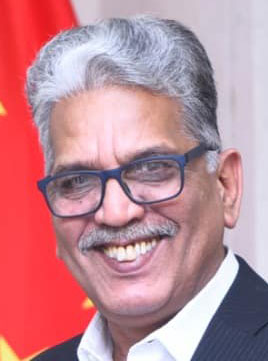
Innovation thrives when ideas meet capital”. This statement underscores the pivotal and important role of the dynamic interplay between creativity and financial support in driving economic progress and change. In the continually evolving economic environment and climate of today, entrepreneurship and small and medium enterprises plays an important role in driving economic progress, job creation, innovation, financial development and financial revolution. Entrepreneurship is the activity of setting up aventure or business that involves financial risks typically for the pursuit of achieving significant growth and profits.
SMEs play a significant role in the economic, social and industrial development of any country by proving jobs and opportunities. They are considered as the cornerstone of economies around the globe and serve as crucial driver of financial development and financial revolution. Like many other developing countries, Pakistan’s economy is also a direct reflection of its SMEs sector. There are more than 5 million SMEs in Pakistan which contributes 40% of GDP and 25% of overall exports. But unfortunately SMEs in Pakistan has less contribution to economic development in contrast to other countries around the globe, however their impact cannot be denied. Acquiring capital for these SMEs and enterprises remains one of the main problems in Pakistan. Besides traditional financing from banks and other financial intermediaries, we need some innovative new technologies that permit us to raise funds for an innovative idea, product or attractive business model.
Financing is the blood of any business whether small and medium enterprises, corporations or
multinational companies around the globe. Without appropriate sources of financing,
thousands of business and entrepreneurship projects fails every year to mark any impact in the
economy. Therefore, it is important to search for new avenues in this technological era. The traditional sources of financing from commercial banks and others financial intermediaries are characterized heavily by high collateralization, higher transaction cost, higher interest rate and tight borrowing conditions. Moreover, the lending process is too formal and complicated to gain funds for your venture. In these unfavorable scenarios, crowdfunding can provide a best solution to the financing problems of those SMEs and businesses which finds it very difficult to secure loans from the traditional financing institution. Even if it seems to be a new phenomenon but it can be traced backed to 1700s from contribution to the translation of “The Iliad” to the Irish load funds and modern day Kickstarter which has financed $7.3 billion across 240,000 projects
As it name indicates it refers to the collection of funds from a large number of crowd or investors typically with the help of social media and other online platforms. It is the practice of sharing your business ideas with the crowd and securing funds either in the form of equity or loan financing. The crowd funds the project via the online crowdfunding platforms which plays the role of intermediaries between the crowd and businesses or SMEs. These platforms raise funds and distribute to the SMEs having innovative ideas. With the commercialization of internet, matching of funders and investors becomes more easy and convenient due to lower transaction cost and low risk exposure.
Furthermore, it allows us invest funds in four different models. Donation based crowdfunding allows us to collect and invest funds for charity activities. In this model, the lender gets back nothing, not even the principal amount. Reward based crowdfunding allows us to expect something either tangible or intangible reward in return for their contribution to the venture. However, this reward does not consist of the interest and investors are not offered the earnings of the company. Peer to peer crowdfunding is somewhat similar to the traditional loan financing where the investors provide amount on short term basis and expects for some return. Equity model allows the investors to become the residual owners of the business or company by issuing shares of the project. This model is an attractive opportunity for people to invest their savings in environment friendly venture.
Most of our cities are suffering from many dilemmas including infrastructure, beautification, sewerage etc. The government is unable to provide all the facilities. So the civil society should come farward and play a crucial role in the development of our cities. Crowdfunding platforms bring us the opportunity to invest in our own cities for the sake of better standard of living and quality of life. This will allow us to invest in environment friendly ventures where it will contribute to our wellbeing and welfare. These platforms have the capability to support various initiatives like addressing education and connectivity challenges in deprived regions of Pakistan, mitigating environmental pollution by providing biogas digesters to farmers and empowering the woman’s by investing in homemade garments. African and gulf countries investors get benefited from these platforms, which helps them to convert their startup to big multinational companies.
Despite introducing the local entrepreneurs on national and global level, crowdfunding is being banned in the country. Security and exchange commission of Pakistan has some serious concerns over the regulatory environments of the crowdfunding. They have the apprehension of fraud, money launderingand terrorism financing through crowd funding platforms. So SECP warns the public to not mislead by fraudulent activities and the public should not involve in any online investment platforms. SECP should come farward with a regulatory setup for crowdfunding and should make it legal in order to solve the financing problems of SMEs which will help us in driving development and growth of our economy. Only then we can move farward towards a developed state.




